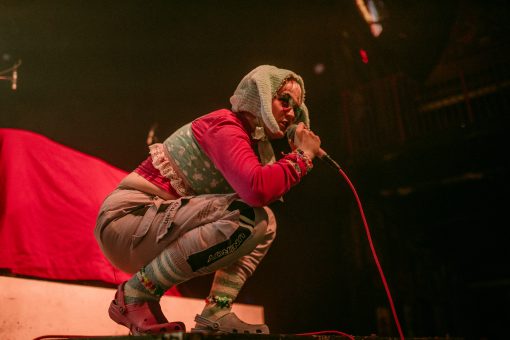Story // JoAnn Zhang
Photos // courtesy of the artist
For identities that exist outside social norms, there is an unending need to justify their individual realities often by rejecting their societal role in public on the stage of their peers. But who does not desire friendship, companions, and to be whole within a group? Elliot Lee voices the loneliness of being different, being queer, in their bedroom pop-rock filtered through a Tumblr-esque aesthetic. During our conversation, Elliot, who grew up in the South, is as down-to-earth and unpretentious as a girl next door, but also as edgy and warmingly sincere as an emotional teenage boy. Their new single “Easy To Be You” unravels the alienating experience of gender confusion. But although the feelings and stories welled in their music are often pensive and lonely, the whole spirit of their oeuvre feels anything but. Their music feels like a park for the Internet: where people of common background, of the neighborhood of sexuality, can gather and remember that they are not alone.
What were the experiences that inspired “Easy To Be You”?
It’s the feeling of like, I wish that I was the people that are saying I shouldn’t be queer, because that sounds easy, to be a person that thinks that it’s so simple to not be who they don’t want to be. So like, it’d be very easy to be someone who’s not queer, but I’m not that. People who aren’t just don’t understand. So they don’t get what it’s like to be me, someone who can’t just pick to not be queer, you know?
What was your experience growing up as a queer person?
When I first realized that I was queer, I was probably like, 12 years old. Before then, I kind of knew, but 12 was when I started to find labels that fit me better. And I remember back then, bisexual felt right. I remember someone else in the school got outed as bisexual. And everyone else in the school hated them, and turned their backs on them, was really mean to them. And for me, I was like, oh, that’s scary. No one’s ever gonna find out that’s who I am. That was one of my first experiences with seeing really how bad queer people in general are treated firsthand. My move to Florida is when I started to be more open about being queer. I dated girls and the school would get mad at me for holding their hands in between classes. And I almost got kicked off the bus once because they were like, we don’t allow that on the bus, no holding hands if you’re gay, and they freaked out at us. So that was my experience in high school and it definitely made me closeted and scared to be me. And I went through a phase where I tried to just fit in as much as possible and be super straight and normal. Then in college, I learned to get back out of that. So I’m still learning.
Is your aesthetic intentionally 2000s blog and Tumblr vibes?
It kind of happened because I grew up in the Y2K, MySpace, Tumblr, era. So I drew a lot of inspiration from that. I feel like a lot of what I do is for my younger self, like my 13-year-old self, who grew up in Tumblr. So my stuff caters to who I was when I was 13. So it ends up looking like the world did back then. And I just feel a lot of comfort in making the world that I lived in back then, feel like a safer world now by making it my world, and doing it as a person who can feel comfortable in who I am.
What do you want people to take away from your music fifty years from now?
Hopefully, they’ll take away the fact that my music is here for the community. I think that’s a big part of what I do; I’ve always loved bands that had communities with them, not just fans but people who are there with them, and it feels like the fans are part of the whole thing. Hopefully, I’m remembered for that, and my fans are remembered as being cool people, because they’re all really awesome people. I just hope I have a positive impact.

